April 15, 2025 | 07:24 GMT +7
April 15, 2025 | 07:24 GMT +7
Hotline: 0913.378.918
April 15, 2025 | 07:24 GMT +7
Hotline: 0913.378.918
In early 2024, the Netherlands Development Organization (SNV) introduced the "Climate-Resilient and Sustainable Rice Value Chain Transformation in the Mekong Delta" Project (TRVC Project). So far, the TRVC Project has enlisted the participation of 11 well-regarded firms in the rice sector to work together with farmers and local cooperatives. This includes Vietnam Rice Company Limited (Vinarice), which is a subsidiary of the Vietnam Seed Corporation (Vinaseed).
These companies have all offered advanced technology packages to guarantee that farmers get a minimum of 30% profit from rice farming. Upon the completion of purchase contracts, the items have the opportunity to be included in the premium rice market segment. When carbon credits are traded, firms will provide income to farmers as well.

The fields participating in the TRVC Project of Mr. Nguyen Van Khanh, Tam Nong district, Dong Thap are harvesting.
At the start, a total of 8,000 hectares of rice have been officially enrolled to take part in the TRVC Project. These operations will generate fundamental advantages, enabling firms and farmers to form connections autonomously in the future.
In Tam Nong District, Dong Thap, the initial rice field in the TRVC Project of Vinarice Company has commenced harvesting with great enthusiasm from all participants, signifying the first achievement in Vinarice's "Low-Emission Rice Cultivation" endeavor.
In January 2024, Mr. Nguyen Van Khanh, a resident of Tam Nong District, Dong Thap, made the decision to allocate 32 hectares of his rice fields to the TRVC Project, with the assistance of Vinarice Company.
Mr. Khanh participated in the Project and was assigned to work with Vinarice. He was instructed to cultivate the Huong Chau 6 rice variety and implemented the "1 Must, 5 Reductions" (1P5R) and Alternate Wetting and Drying (AWD) methods. The seed application rate was 60 kg per hectare, the fertilizer application rate was 560 kg per hectare, and the total number of irrigation events was 8.
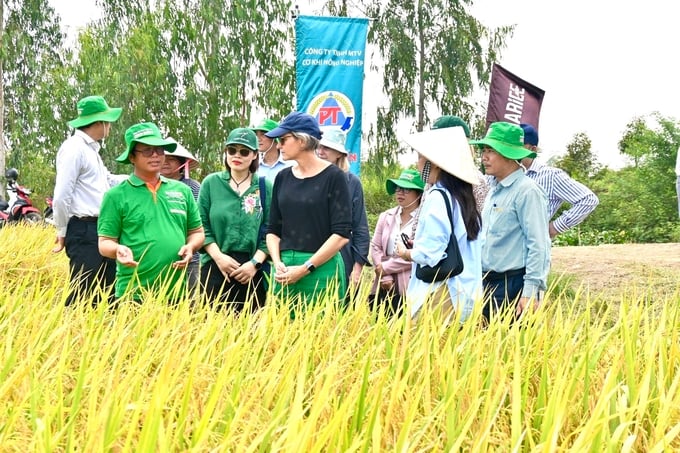
Mr. Nguyen Van Khanh (blue shirt on the far left), Tam Nong district, Dong Thap excitedly shared the results achieved when participating in the TRVC Project.
The season's results demonstrated a yield of over 7 tons per hectare, surpassing the yield of traditional agriculture which only reached 6 tons per hectare. The profits topped 35 million VND per hectare, greatly surpassing the earnings from traditional farming methods by more than 17 million VND per hectare.
Mr. Khanh stated that the production process was exceptionally seamless, devoid of any challenges. By according to Vinarice's guidelines, we planted the rice in a sparse manner to minimize the number of seeds, administered fertilizer based on the specific requirements of the rice plant, and implemented a method of alternating watering and drying.
During the execution of the model, numerous adjacent farmers regularly arrived to observe the fields. On the day of the harvest, rice growers arrived enthusiastically to assess the true efficacy.
"Despite using a minimal amount of seeds and fertilizer and sowing the rice sparsely, the rice yield in Mr. Khanh's field, as observed by Ms. Le Thi Be Sau, a rice farmer in Tam Nong District, Dong Thap, was remarkably high, even surpassing that of her densely sown field," Ms. Le Thi Be Sau expressed her admiration.
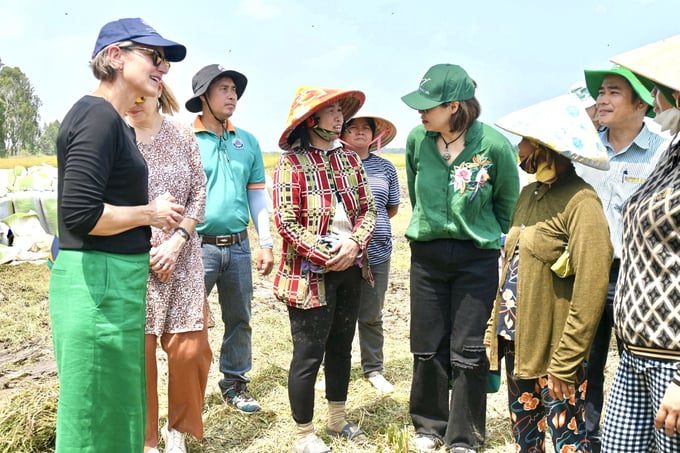
Ms. Le Thi Be Sau (plaid shirt, standing in the middle) shares with the delegation led by Ms. Kristin Tilley, Australian Ambassador for Climate Change - Australian Ministry of Foreign Affairs and Trade, visiting Mr. Nguyen Van Khanh's rice fields.
In Tam Nong District, as well as in Dong Thap Province as a whole, although not significantly affected by saltwater intrusion, the detrimental effects of unpredictable weather patterns, such as lengthy periods of heat or rain, can nonetheless result in decreased agricultural productivity. Hence, it is important to employ sophisticated methodologies and contemporary technology to bolster the rice crops' ability to withstand the effects of climate change, thereby guaranteeing optimal productivity and quality.
The early success of the TRVC Project partially illustrates that implementing drastic changes in agricultural practices and embracing innovation has enabled farmers to enhance their earnings, safeguard the well-being of rice cultivators and customers, and preserve the environment.
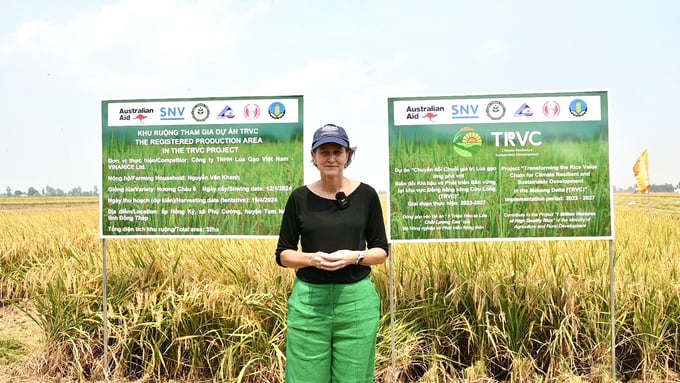
Ms. Kristin Tilley, Australian Ambassador for Climate Change - Australian Department of Foreign Affairs and Trade, positively evaluated the results the TRVC Project brings to the community.
Kristin Tilley, the Australian Ambassador for Climate Change at the Department of Foreign Affairs and Trade, stated that rice cultivation has been a longstanding practice among farmers in the Mekong Delta. I commend the fact that farmers have become more cognizant of the effects of climate change and are now eager to engage in the model based on the experiences of innovative farmers and enterprises.
Kristin Tilley expressed her hope that effective ways would proliferate, resulting in mutual benefits for all stakeholders and enhancing the value of the community in the future.
The initial cultivated area of the TRVC Project holds great importance for Vinarice Company, as it contributes significantly to the company's endeavors in achieving sustainable and environmentally-friendly agricultural practices.
Vinarice's strategy for the project until 2027 involves partnering with more than 20 cooperatives and farmers in the provinces of Dong Thap, An Giang, and Kien Giang. The objective is to shift towards low-emission rice production on a total area of over 10,000 hectares. This initiative will directly benefit approximately 2,000 farming households.
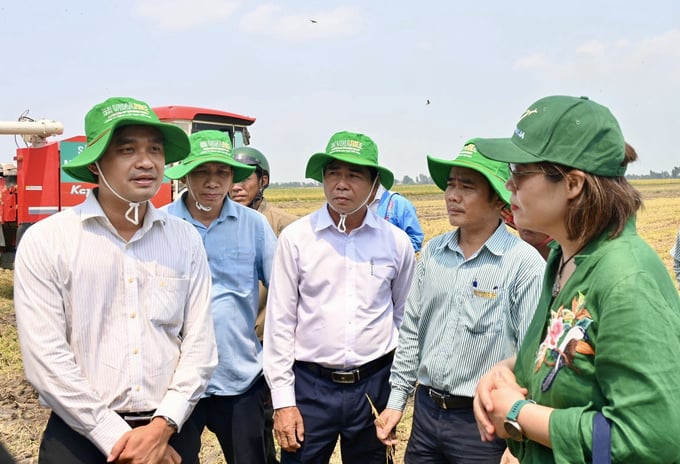
Mr. Nguyen Van Vu Minh (white shirt, far left), Director of Dong Thap Department of Agriculture and Rural Development shared about the initial results of the TRVC Project and the role of Vinarice.
Tran Truong Tan Tai, the General Director of Vinarice, a limited company specializing in rice production in Vietnam, states that the TRVC Project has shown encouraging early results. The innovative farming practices introduced by the project have been well-received by farmers and show potential for future development. In the initial season, 700 hectares were put into operation, and in the upcoming season, we plan to increase the area to approximately 2,000 hectares.
Nguyen Van Vu Minh, the Director of the Department of Agriculture and Rural Development of Dong Thap, stated that Vinarice has effectively guided farmers to engage in the value chain, aligning with the objectives of the TRVC Project.
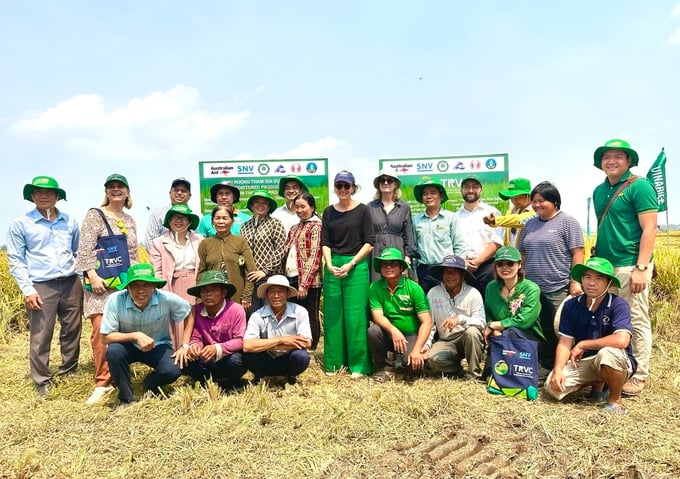
Farmers took photos with the delegation led by Ms. Kristin Tilley, Australian Ambassador for Climate Change - Australian Department of Foreign Affairs and Trade when visiting Mr. Nguyen Van Khanh's farm in Tam Nong district, Dong Thap.
The initial positive outcomes of this first achievement serve as a solid foundation for the wider adoption of contemporary, climate-resilient farming methods among farmers.
Currently, the fields serve not only as a means of revenue for farming households but will also transform into a significant "green cycle," promoting and disseminating the idea of "affordable, high-quality, reduced emissions, and increased income."
Translated by Linh Linh
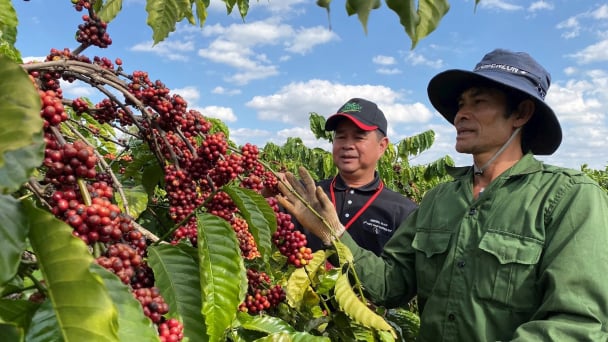
(VAN) Businesses emphasize fairness and equality when integrating social factors into their sustainable development strategies.
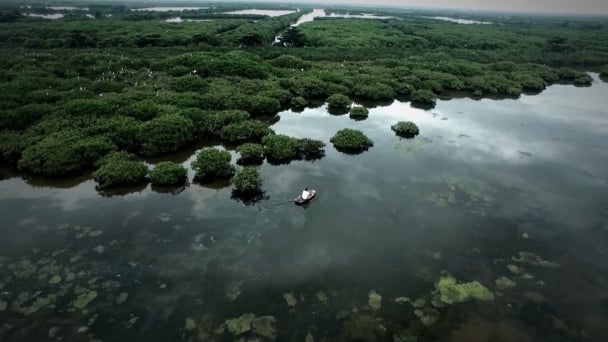
(VAN) French organizations and enterprises propose that Thai Binh province provide potential and long-term cooperation contents related to climate change response and green industrial development.
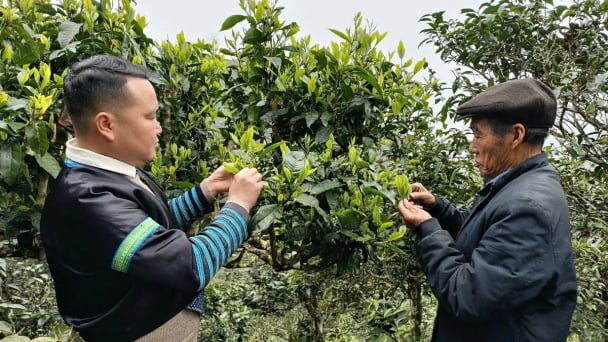
(VAN) Shan Tuyet tea is considered a 'heavenly treasure'. The H'mong people allow the tea to grow naturally, adhering to organic production principles, with the aim of exporting the product.
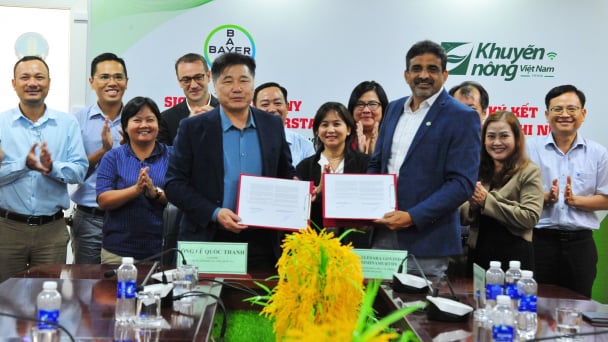
(VAN) Bayer Vietnam and the National Agricultural Extension Center have signed a partnership agreement to expand the development of effective and safe farming models for rice, durian, and coffee.
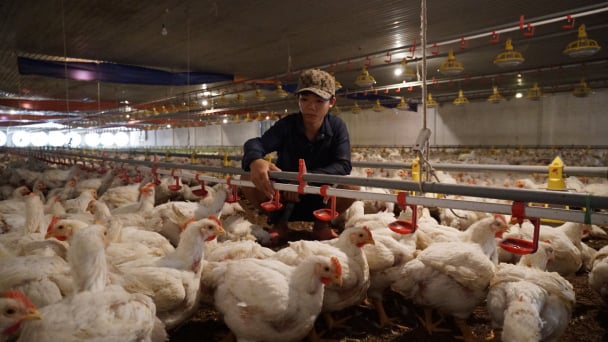
(VAN) Tay Ninh province possesses all the favorable conditions, from natural advantages to geographic location and social harmony, to drive economic development, particularly in attracting investment and advancing modern livestock farming.
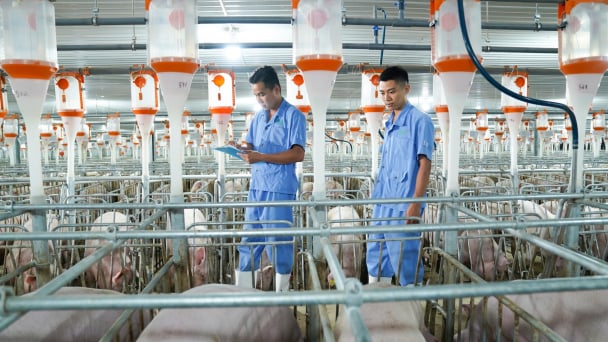
(VAN) Notably, every link in BAF's entire closed livestock value chain Feed - Farm - Food has received international certification.
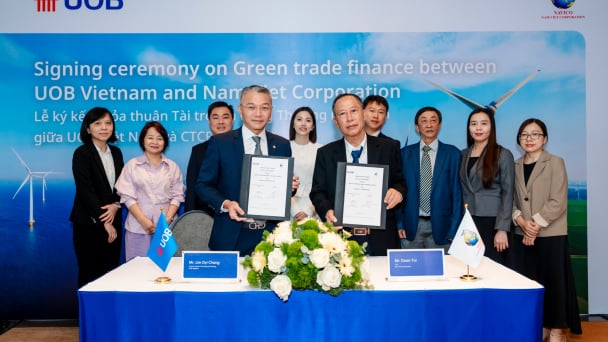
(VAN) UOB Vietnam has recently signed a green credit agreement with NAVICO to develop sustainable aquaculture that meets international standards.